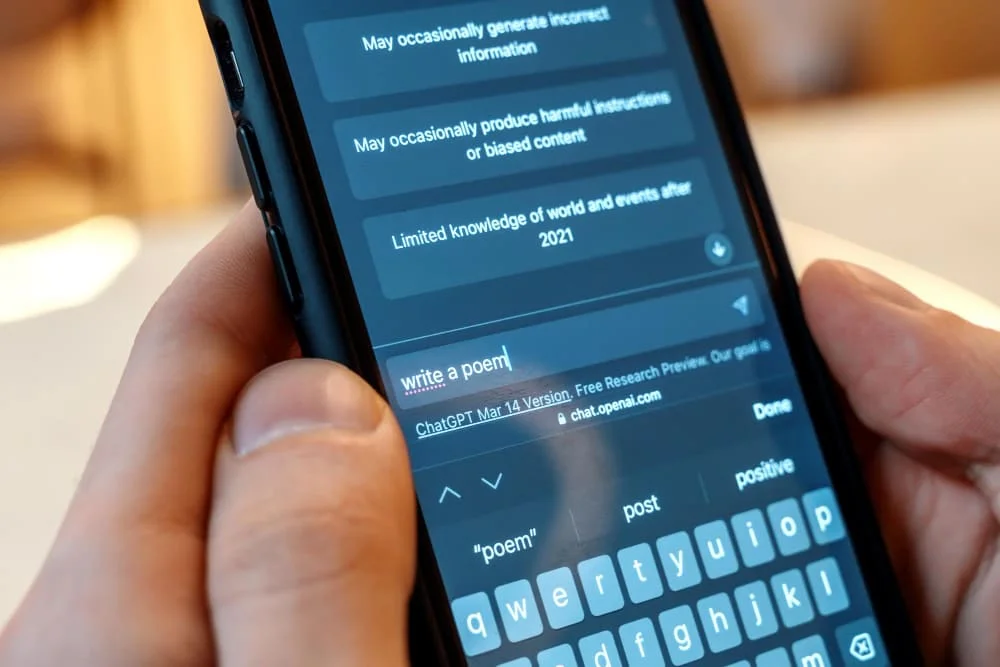In today’s fast-evolving fintech landscape, the convergence of AI (Artificial Intelligence) and blockchain technology is creating transformative possibilities. These advanced technologies are redefining how financial services are delivered, enabling increased automation, security, and personalization. As fintech businesses seek to streamline processes, reduce costs, and provide enhanced user experiences, AI and blockchain offer scalable solutions with immense potential.
One significant area where AI and blockchain have left their mark is in payment systems. AI can optimize payment processing by analyzing transaction data, identifying potential fraud, and offering predictive analytics for consumer behavior. Blockchain, on the other hand, brings transparency, decentralization, and security to payment transactions. This makes it ideal for cross-border payments, remittances, and secure digital transactions, where trust and verification are paramount.
Lending platforms are also benefiting from AI and blockchain integration. AI-powered algorithms assess creditworthiness by analyzing vast datasets, including social behavior, employment history, and spending patterns. Blockchain adds value by creating tamper-proof digital identities and transaction histories, facilitating more accurate and efficient lending decisions.
Furthermore, AI’s ability to analyze large datasets in real-time enables dynamic risk management, reducing financial institutions’ exposure to potential losses. Blockchain’s transparency and immutability provide an additional layer of accountability in the financial ecosystem, ensuring all transactions are securely recorded and verifiable.
In the coming years, the combined potential of AI and blockchain will continue to drive fintech innovation, fostering new business models that can serve both traditional financial institutions and emerging fintech startups. Together, they will play a pivotal role in making financial services more inclusive, efficient, and secure across the globe.
Artificial intelligence (AI) and blockchain technology have significantly transformed fintech. Integrating these technologies in financial services has enabled automation, enhanced security, and personalized customer experiences. As fintech companies aim to provide faster, safer, and more efficient services, AI and blockchain have emerged as key drivers of innovation. This article explores their role in modern fintech software development, use cases, benefits, challenges, and processes. Additionally, we will discuss how Cenozic can support fintech organizations in implementing these technologies effectively.
Benefits of AI and Blockchain in Fintech Software Development
Enhanced Security
Blockchain technology offers enhanced security through its decentralized and cryptographic mechanisms. Transactions are secured, encrypted, and recorded on multiple nodes, making it nearly impossible to alter or hack. This ensures the safety of sensitive financial data, reducing the risk of cyberattacks and fraud.
AI also strengthens security by detecting and mitigating threats in real-time. Its ability to recognize anomalies in large datasets allows financial institutions to detect fraudulent activities and potential security breaches more effectively.

Increased Efficiency
AI and blockchain contribute to significant improvements in operational efficiency. AI automates repetitive tasks such as data entry, fraud detection, and customer support, freeing up human resources for more complex tasks. Additionally, blockchain’s distributed ledger technology enables real-time transaction processing without intermediaries, reducing transaction times and costs.
For example, AI-powered chatbots can handle thousands of customer inquiries simultaneously, speeding up response times and improving customer satisfaction. Blockchain’s automation of processes through smart contracts eliminates delays associated with manual processes.
Cost Reduction
Implementing AI and blockchain technologies can lead to substantial cost reductions. AI-driven automation cuts down on operational costs by minimizing the need for manual intervention in processes like customer support and data processing. Meanwhile, blockchain’s ability to facilitate direct peer-to-peer transactions eliminates the need for intermediaries, reducing transaction costs in areas such as cross-border payments.
By reducing the reliance on intermediaries, streamlining operations, and minimizing the risk of fraud, both AI and blockchain help financial institutions achieve higher profitability.
The Process of Implementing AI and Blockchain in Fintech Development
Implementing AI and Blockchain in fintech development begins with identifying specific business goals. Once these are set, the process involves conducting thorough research to determine how AI and Blockchain can address key challenges, such as security, efficiency, and customer experience. Next, comes system architecture design, where AI algorithms and blockchain frameworks are planned and integrated into existing infrastructures. This is followed by selecting the right technology stack tailored to the project’s needs, ensuring compatibility with AI models and blockchain protocols.

After development, rigorous testing is conducted to ensure robust security, transparency, and compliance with financial regulations. Once the systems are validated, they are deployed, followed by regular maintenance, monitoring, and iterative updates to enhance performance. Cenozic offers expert support in implementing AI and Blockchain solutions for fintech, ensuring a seamless, scalable, and future-proof development process. Here are some processes that provides a deeper understanding of the role AI and blockchain play in fintech software development :
1. Identifying Business Objectives: Before implementing AI and blockchain in fintech development, it’s crucial to clearly define the business objectives. This step involves understanding the specific challenges or opportunities that these technologies can address, whether it’s enhancing security, improving customer experience, or optimizing financial operations. Aligning AI and blockchain solutions with business goals ensures that development efforts are focused on creating value and solving real-world problems within the fintech ecosystem.
2. Selecting the Right Technology Stack: Choosing the right technology stack is vital for the successful implementation of AI and blockchain. For AI, this includes selecting the appropriate machine learning algorithms, data processing frameworks, and AI development platforms. Blockchain requires decisions regarding the type of blockchain (public or private), consensus mechanisms, and smart contract frameworks. These choices will impact the scalability, security, and performance of the fintech solution, so they must be aligned with the project’s technical requirements and business objectives.
3. Data Collection and Integration: For AI to function effectively, data is key. This stage involves collecting relevant financial data from various sources, such as customer transactions, market trends, and historical records. The data needs to be cleaned, structured, and integrated into the system. For blockchain, integration involves linking existing databases and systems to the blockchain ledger. Ensuring data accuracy and integrity during this phase is essential, as it will directly impact the performance of both AI models and blockchain transactions.
4. Developing AI Models and Smart Contracts: Once the data is prepared, the next step is developing the AI models and blockchain smart contracts. AI models are trained to perform specific tasks such as fraud detection, credit scoring, or predictive analytics. Meanwhile, smart contracts are created to automate financial transactions on the blockchain. This phase often involves iterative testing and refining to ensure that the AI models deliver accurate results and that smart contracts execute as intended without security vulnerabilities.
5. Testing and Security Validation: Testing is a critical phase in implementing AI and blockchain in fintech software development. AI models are tested for accuracy, efficiency, and reliability using various datasets, while blockchain systems are thoroughly examined for security and performance. This step involves both functional testing and stress testing to ensure that the system can handle real-world scenarios. Ensuring that blockchain systems are secure and tamper-proof, and that AI models deliver reliable results, is essential before the solution goes live.
6. Deployment and Continuous Monitoring: The final step is the deployment of the AI and blockchain solution in a live fintech environment. Post-deployment, continuous monitoring is vital to ensure that the system operates smoothly. AI models may require retraining and updating as more data becomes available, and blockchain systems must be monitored for any potential security threats or performance issues. Ongoing maintenance and optimization are crucial to ensure that the fintech solution continues to meet business objectives and adapts to evolving needs.
Use Cases of AI and Blockchain in Fintech
AI Use Cases
AI has revolutionized the way financial institutions operate, offering a wide range of applications, including fraud detection, risk assessment, personalized financial advice, and customer service automation. For instance, AI-powered chatbots can answer customer queries in real-time, improving service efficiency while reducing costs. Machine learning algorithms can also analyze vast amounts of financial data to detect fraud patterns, providing real-time alerts to financial institutions and minimizing the risk of financial loss.
Furthermore, AI is employed in algorithmic trading, where it helps analyze market data, trends, and price patterns to make informed trading decisions. AI can make split-second calculations and decisions that allow investors to maximize their returns while minimizing risks.
Blockchain Use Cases
Blockchain technology is known for its decentralized and transparent nature, making it an ideal solution for enhancing security and trust in fintech. Blockchain-based systems provide secure, immutable ledgers that can track transactions in real-time, preventing unauthorized tampering. One of the most popular use cases of blockchain in fintech is cryptocurrencies like Bitcoin and Ethereum, which have paved the way for decentralized financial systems.
Smart contracts, which are self-executing contracts with terms directly written into code, are another significant use case of blockchain in fintech software development. They automate contract execution between parties, reducing the need for intermediaries, lowering costs, and ensuring transparency. Blockchain can also be utilized in identity verification and Know Your Customer (KYC) processes, streamlining the compliance requirements for financial institutions.
Challenges of AI and Blockchain in Fintech
Regulatory and Compliance Issues
One of the primary challenges facing the adoption of AI and blockchain in fintech software development is regulatory uncertainty. As blockchain technologies, particularly cryptocurrencies, continue to evolve, governments and regulatory bodies struggle to develop frameworks that balance innovation with security and consumer protection. Compliance with international and local regulations remains a significant challenge, especially for companies looking to operate across borders.
Similarly, AI-based algorithms need to be transparent and auditable to ensure they meet regulatory standards. Financial institutions must ensure their AI systems comply with regulations such as the General Data Protection Regulation (GDPR) and ensure the ethical use of AI.
Integration Complexities
Integrating AI and blockchain into existing financial systems can be complex and time-consuming. These technologies often require specialized knowledge, making it difficult for financial institutions to adopt them without the help of experienced software development teams. Additionally, integrating blockchain with legacy systems can lead to interoperability issues, requiring significant adjustments and upgrades.
The technical challenges of AI also include ensuring the quality and accuracy of data used for training machine learning models. Poor data quality can result in inaccurate predictions, impacting decision-making and leading to potential financial losses.
How Cenozic Can Help You in AI and Blockchain-Based Fintech Development
At Cenozic, we specialize in AI and blockchain-based fintech software development that delivers measurable results for financial institutions. As a leading fintech software development company, Our team of experts guides you through the entire process, from assessing your requirements to designing, developing, testing, and deploying cutting-edge fintech applications. We prioritize security, scalability, and compliance to ensure your fintech solution meets industry standards and provides value to your customers.
In addition to building AI-driven fraud detection systems and secure blockchain networks, we offer ongoing support and maintenance services to keep your fintech solution up-to-date with the latest trends and regulations. Whether you’re looking to integrate AI for predictive analytics or implement blockchain for secure transactions, Cenozic is committed to helping you achieve your business goals. We provide end-to-end services that ensure your fintech solution is future-ready, robust, and primed for success in the modern digital economy.
As a leading fintech software development company, Cenozic specializes in leveraging AI and blockchain to build powerful, secure, and scalable fintech solutions. Our expert team ensures that every stage of the development process is tailored to your unique needs, delivering reliable and efficient systems that are ready to tackle the evolving demands of the fintech industry. With our deep knowledge of AI, blockchain, and fintech, we empower businesses to innovate and stay competitive in the fast-paced financial sector.
Conclusion
AI and blockchain are revolutionizing the fintech industry by offering unprecedented levels of security, efficiency, and innovation. AI’s ability to automate tasks, predict financial trends, and deliver personalized experiences, combined with blockchain’s transparent and secure nature, makes them the perfect pair for transforming financial services. From fraud detection to smart contracts, these technologies are reshaping how fintech companies operate, providing both businesses and consumers with more robust and reliable solutions.
However, integrating AI and blockchain into fintech is not without its challenges, such as technical complexity, regulatory concerns, and the need for expertise in these rapidly evolving fields. With the right approach, these hurdles can be overcome, allowing companies to fully leverage the transformative power of AI and blockchain.
Cenozic is at the forefront of this technological shift, helping fintech businesses harness the potential of AI and blockchain to create secure, scalable, and innovative financial solutions. Our expertise in both technologies ensures that we can guide your company through every step of the development process, delivering cutting-edge fintech solutions that are future-proof and aligned with your business objectives.


 The Future of AI: How Machine Learning is Transforming Businesses
The Future of AI: How Machine Learning is Transforming Businesses  AI in E-commerce: Enhancing Customer Experience & Engagement
AI in E-commerce: Enhancing Customer Experience & Engagement  How AI-Powered Chatbots Are Revolutionizing Customer Support
How AI-Powered Chatbots Are Revolutionizing Customer Support  The Role of AI in Mobile App Development: Smarter and Faster Apps
The Role of AI in Mobile App Development: Smarter and Faster Apps  How To Choose Top Website Development Company In USA
How To Choose Top Website Development Company In USA 

